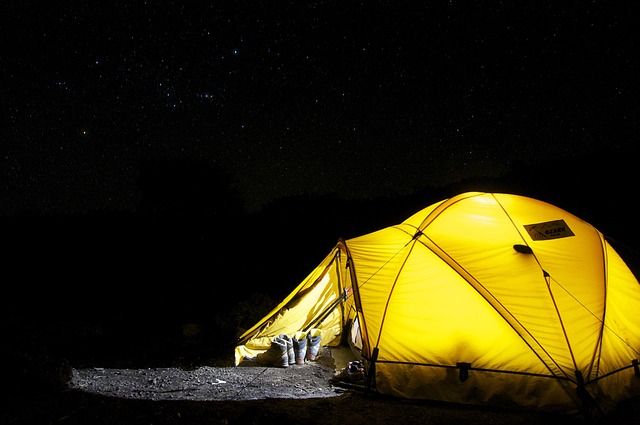Outdoor Essentials for Campers: A Comprehensive Guide
Outdoor essentials for campers include tents, sleeping bags, cooking equipment, and navigation tools. Items like first aid kits, lighting, and water purification systems are also important. Proper gear supports safety and comfort during outdoor adventures.

Selecting the Right Shelter for Your Camping Adventure
The foundation of any camping trip begins with appropriate shelter. Tents come in various designs, sizes, and seasonal ratings to accommodate different environments and group sizes. When selecting a tent, consider factors such as weather resistance, setup complexity, and packed weight. Three-season tents work well for spring through fall camping, while four-season tents provide additional protection for winter expeditions. Backpackers should prioritize lightweight, compact options, while car campers can opt for roomier models with added features like vestibules and room dividers. Alternative shelter options include hammocks with rain flies for minimalist campers in wooded areas, or rooftop tents for those traveling by vehicle to established campsites.
Essential Sleeping Equipment for Outdoor Comfort
After a day of outdoor activities, quality sleep becomes paramount for energy restoration. The sleeping system comprises three main components: sleeping bags, sleeping pads, and optional pillows. Sleeping bags should match the lowest expected temperature of your camping environment, with temperature ratings that accommodate your personal comfort level. Down-filled bags offer excellent warmth-to-weight ratios but perform poorly when wet, while synthetic options provide better moisture resistance at the cost of added bulk. Sleeping pads serve dual purposes – creating cushioning from the ground while providing crucial insulation. Inflatable pads offer superior comfort but risk punctures, while closed-cell foam pads provide reliability and durability. Consider combining both types for optimal comfort and security in remote locations.
Camp Kitchen Setup and Food Preparation Tools
An efficient camp kitchen transforms outdoor meal preparation from a challenge into a pleasure. Core cooking equipment includes a reliable stove appropriate for your destination – compact backpacking stoves for wilderness trips or larger dual-burner propane stoves for car camping. Lightweight, nested cookware specifically designed for outdoor use maximizes space efficiency while providing essential cooking vessels. Don’t overlook proper food storage solutions, particularly in areas with wildlife concerns. Bear canisters or properly hung food bags are essential in many wilderness areas, while coolers with sufficient ice can preserve perishables for car camping trips. Reusable water treatment options – whether filters, purifiers, or chemical treatments – ensure access to safe drinking water throughout your stay.
Navigation and Safety Equipment for the Outdoors
Safety preparation represents the most crucial but frequently overlooked aspect of camping preparation. Always carry navigation tools appropriate for your destination, including physical maps and compasses as primary tools, with GPS devices as valuable supplements. A well-stocked first aid kit tailored to your group size and trip duration should contain treatments for common outdoor injuries, personal medications, and emergency supplies. Communication devices deserve careful consideration, particularly in remote areas where cell service is unreliable. Options range from satellite phones and personal locator beacons for emergency situations to two-way radios for group coordination. Always share your detailed trip plan with a trusted person who isn’t joining the expedition.
Appropriate Clothing and Personal Items for Camping
The outdoor adage “cotton kills” highlights the importance of proper clothing selection for camping. Base layers should consist of moisture-wicking synthetic or wool materials that move perspiration away from the skin. Mid-layers provide insulation through fleece or down garments, while outer shells offer protection against precipitation and wind. Always pack additional clothing beyond what immediate weather forecasts suggest, as conditions can change rapidly in outdoor environments. Personal hygiene items should be minimized but sufficient, including biodegradable soap, quick-dry towels, and appropriate waste disposal tools. Sunscreen, insect repellent, and lip protection become essential personal care items regardless of season or location.
Specialized Camping Gear for Different Environments
Different camping environments demand specialized equipment considerations to enhance both safety and enjoyment. For desert camping, additional water storage capacity, sun protection, and cooling systems become critical. High-elevation camping requires equipment rated for extreme temperature fluctuations and potential severe weather. Winter camping necessitates four-season tents, appropriate-rated sleeping bags, insulated sleeping pads, and snow tools for shelter construction and safety. Coastal camping brings considerations for sand management, corrosion protection for equipment, and tidal awareness. Understanding your destination’s specific challenges allows for appropriate gear selection rather than unnecessary overpacking.
The joy of camping comes from being prepared enough to focus on the natural experience rather than equipment failures or omissions. By thoughtfully assembling your outdoor essentials according to your specific camping style, group size, and destination characteristics, you can create memorable outdoor experiences with minimal stress. Remember that camping equipment represents an investment in both safety and enjoyment – quality gear properly maintained can provide reliable service for many years of outdoor adventures.




